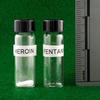Welcome to the Data and AI-Driven Materials Science Group
We develop purposeful solutions to emerging and uniquely challenging problems at the intersection of materials science and artificial intelligence (AI). We focus on Autonomous and AI-Driven Systems, which require the development of methods, tools, and platforms to enable accelerated material and product development workflows. Our internally created autonomous systems enable us to expand our methodology while working on important materials problems, such as Industrial Gas Separation and Purification and Corrosion Resistant Materials with our Autonomous Scanning Droplet Cell.
Much of our work is focused on developing Autonomous Methods that form the core decision-making capability of self-driving laboratories, as well as robust automated Data and AI-Based Quantitative Analysis. We work on a diverse portfolio of materials characterization techniques, with a particularly strong focus on AI-Based X-Ray and Neutron Scattering Techniques. Similarly, we work on Automated Experimental Technology consisting of robotic and high-throughput experimental infrastructure to enable the rapid synthesis and characterization of materials. As part of our AI-Based Computational Metrology work, we develop machine learning (ML) algorithms to perform rapid and accurate selection of optimal system features, therefore optimizing performance, as well as material discovery, under a variety of conditions.
Finally, Data and Protocols serve as a foundation and connective tissue for all our efforts. We have aligned our work in support of community adoption of the FAIR Data Principles. Machine actionable data is a critical enabler of data-intensive science and engineering. Within materials science and engineering, process-structure-properties-performance relationships present unique challenges that have persisted for some time. We have efforts that address data interoperability within specific domains and global interoperability across domains via the emerging FAIR Digital Object Framework. We also support data interoperability early in the data lifecycle. We are currently supporting the development of advanced data management tools for Rapid Drug Analysis and Research (RaDAR).
Team
Core Capabilities
Primary Focus Areas
Projects
Publications
Awards
News and Updates
Press Coverage
Contacts
Group Leader
-
(301) 975-8496
Office Manager
-
(301) 975-8270
Group Safety Representative
-
(301) 975-4593































